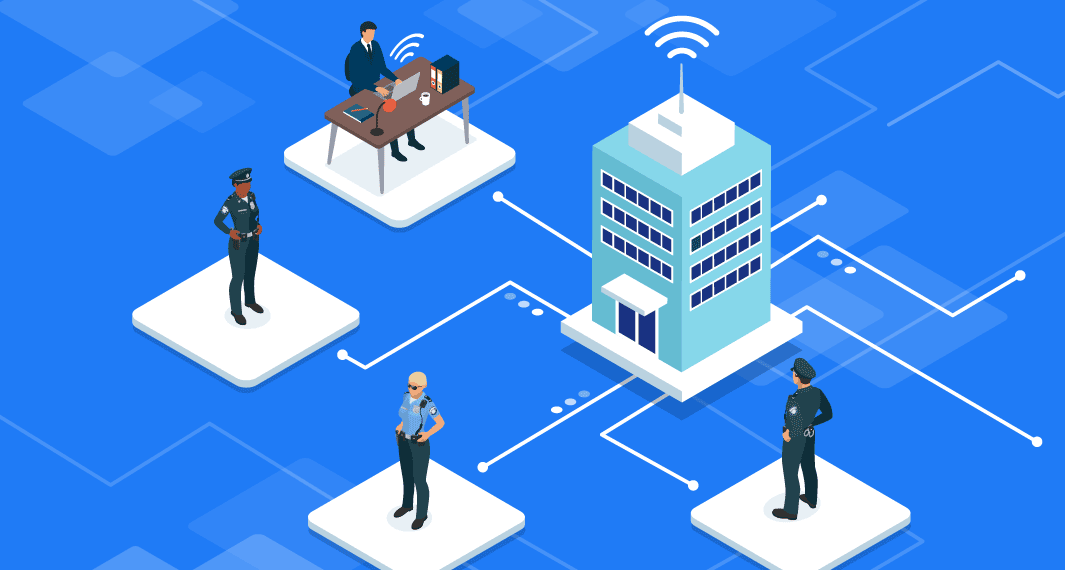Q&A: Workforce Skills for the Future of Security
Eddie Sorrells, CPP, PCI, PSP, has seen significant workplace changes in his decades-long career in the security industry. As president of DSI Security Services, Sorrells manages both office workers and security officers and saw both roles shift significantly during and after the COVID-19 pandemic. He notes that the skill sets of the future are rapidly evolving to make the most efficient use of technology, both in remote and essential work.
The following conversation has been edited for clarity and brevity.
Security Management (SM). Coming out of the pandemic, many workplaces are grappling with a return to the office. Is the conversation different in the contract security industry? What are you seeing?
Eddie Sorrells, CPP, PCI, PSP. During the pandemic, one of the silver linings in a very dark situation was, for the first time, you started to hear security officers being labeled as essential. Security personnel were viewed as more than people who were on site doing a mundane but important function. Now they were recognized as being an essential part of making sure the business continued to function successfully.
While the workforce was going home, while everyone was doing remote work, and while critical decisions were being made on different corporate campuses, companies were looking to security to make sure that we were still showing up. That certainly presented a lot of challenges, but we really saw this paradigm shift to the realization of how important the frontline security officer really was and is.
SM. Did this continue as the pandemic waned?
Sorrells. Yes. As we went through that entire process, when some of our customers—and I think end users of contract security at large—started to migrate a little bit back to the office, you started to see the same type of environment as before, but now a broader recognition of what the security officer could actually do and how they could manage that hybrid workforce.
Some customers, of course, have not fully returned to the office and quite frankly, may never fully return because they realize that things can be done remotely. I can tell you—and just to step outside of the security officer realm for a minute—from a management standpoint, pre-pandemic, I never got asked this question, but now when I interview management candidates, I’m asked, “Can I do this remotely? Is this a hybrid workforce?”
SM. Does remote work have any application to the security officer role?
Sorrells. Many of those jobs have to be done in person. You have to be actually on the property, and you have to actually be physically present. But we did start to embrace technology more and recognized that, if you’ve got a security officer performing an access control function—standing in the lobby of a building or at an access control station in a manufacturing environment, that can possibly be done remotely.
There has been a shift. This was present before the pandemic, but the pandemic accelerated this way of thinking. These tools existed before the pandemic, but now they’re much more valuable.
I can give you a couple of quick examples. We have some situations where an officer may be in one part of the property and they are running another access control point remotely using autonomous response devices or robotic devices, and they are able to screen someone that's going through a vehicle gate. That can even be done several states away in a SOC (security operations center), where previously a security officer may have been standing there physically, now it can be done remotely.
The demand for security officers is going to continue and I think, exponentially, is going to rise, but what they are going to be doing is going to be much different.
SM. Does this change the training and development needs of security officers?
Sorrells. It does, and really, it’s forced companies like ours and the security officer industry, in general, to really look at that skill set and, quite frankly, what we have to invest in to make sure that our officers are qualified and trained to know those skills and abilities. One point that I wanted to make, too, because when I talk about this, sometimes the inevitable conclusion is security officer services are going away. The demand for security officers is going to continue and I think, exponentially, is going to rise, but what they are going to be doing is going to be much different.
In the frontline security officer world, we are seeing the need to really make sure that the skill sets of security officers are more varied and allow the officer to work with technology and to integrate that into the daily routine.
Remote technology is being embraced much more now than it was before. Again, it wasn’t totally driven by the pandemic, but that really brought it to the forefront. A lot of end users started to really invest time and resources in looking at that, not just from a standpoint of not having someone physically present, but doing things more efficiently—really having a force multiplier.
Again, having a security officer standing at a gate, can that be done through technology to utilize that officer’s presence in a more meaningful way? For example, if you walk into a building, whether it’s a corporate campus, an educational institution, or a manufacturing environment, and a security officer is tied to a mundane, repetitive task, you have to ask can that be done through technology allowing the officer to maximize their efforts elsewhere? It certainly depends on the situation, risk profile, and scope of work, but we have to start asking those questions.
SM. What does that look like for the officer on-site?
Sorrells. We can have more of an effect by having that person be present around the property and being much more of a visible deterrent. It’s all situational. It’s hard to paint with a broad brush. You’ve got to look at every single situation and apply the technology to make sure it’s being utilized correctly, but it is being much more embraced now, not just based on the pandemic, but it’s much more efficient in many situations.
Where you may have had three security officers before, maybe you have two or one, but they are able to be much more efficient in utilizing technology and securing the premises in a meaningful and comprehensive way. I think that security industry associations like ASIS International are going to play a huge part moving forward, developing that skill set and giving that career pathway to frontline security officers. He or she can embrace that in the future and know where this industry is going and how they can be a big part of that.
SM. You talked a little bit about management and hiring folks for management positions who request to work remotely. What special challenges does that bring?
Sorrells. We can embrace it when it makes sense to embrace it, but we are still in a very high-touch industry. We must be out on the sites. For example, if we’re doing a risk assessment, that is very difficult to do behind a desk or computer screen. Getting out and seeing the dynamics of the property and interacting with our customers is critical. It can be done remotely to a degree. There are certain things that, for example, that I do day in and day out as president of a security officer company with a robust technology division that I could probably do remotely.
We are still in a very high-touch industry. We must be out on the sites.
But, when it comes to reaching out to the customer base and engaging with employees, management must be in the same world that security officers inhabit. We can’t have frontline security officers out and about each day on physical properties while managers are sitting behind a computer screen.
It’s really the true definition of hybrid. There are some things we can do remotely very well, but there’s never going to be a substitute for being out there and seeing what’s going on at the property.
SM. What is on the horizon?
Sorrells. You’re going to see this evolution continue. Again, hopefully, there won’t be another COVID situation in the near future, but I think it’s really forced companies like ours, and the security officer industry in general, to embrace our resilience, business continuity, and preparedness. I don’t think anybody was prepared for what we have been through the last two or three years, but if it does occur again, I think our industry is ready to respond.
Teresa Anderson is editor-in-chief of Security Management. Connect with her on LinkedIn or email her directly at [email protected].














